Reykjavik (Iceland)
Cruise Port schedule, live map, terminals, news
Region
Iceland - Greenland - Faroe Islands
Local Time
2024-12-20 22:45
 34°F
34°F 1°C

 Gentle breeze
Gentle breeze3.7 m/s
 41 °F / 5 °C
41 °F / 5 °C 28 °F / -2 °C
Port Reykjavik cruise ship schedule shows timetable calendars of all arrival and departure dates by month. The port's schedule lists all ships (in links) with cruises going to or leaving from Reykjavik, Iceland. To see the full itineraries (ports of call dates and arrival / departure times) and their lowest rates – just follow the corresponding ship-link.
| Day | Ship | Arrival | Departure |
|---|---|---|---|
| 5 July, 2027 Monday | 01 Jan, 02:00 | ||
| 12 July, 2027 Monday | 01 Jan, 02:00 | ||
| 19 July, 2027 Monday | 01 Jan, 02:00 | ||
| 23 July, 2027 Friday | 01 Jan, 02:00 | ||
| 26 July, 2027 Monday | 01 Jan, 02:00 |
Reykjavik is Iceland's main seaport, also the country's capital city and center of the cod-fishing industry. The city has population around 124,000.
Reykjavik Harbour (port locode ISREY) is also Iceland's principal "cruise port" and is visited on both transition itineraries and as part of turnaround/roundtrip voyages serving as homeport.
In 2023, the cruise port had scheduled a total of 265 ship calls with estimated ~285,000 passengers (of whom ~90,000 turnaround). This represented a 31% increase over 2022 when were handled 184 ship calls and a total of 170,770 cruisers. The significant growth was predominantly from turnaround operations/roundtrip itineraries leaving from and ending in Reykjavik. In October 2023, the Port announced plans for building a new cruise terminal (at Sundahofn), with construction works slated to start in 2023-Q3.
In 874 the Vikings established the first permanent settlement in Reykjavik. The community was chartered in 1786, and in 1843 became the seat of parliament. Reykjavik became Iceland's capital in 1918, as well as the world's northernmost metropolis. the city is on Faxa Bay, surrounded by mountains and provides easy access to fishing and skiing.
Reykjavik claims that it's "the cleanest city on earth". It has 50+ art galleries and museums, as well as 2 theatre companies and a symphony orchestra. The city's landmarks include Althing (parliament building) and Hallgrímskirkja (Hallgrímur Church/Lutheran cathedral, 1945-opened modern building).
From Reykjavik are offered bus tours to the National Park on the shores of Iceland's largest lake (Pingvallavatn), with wildflowers and abundant birdlife. Here too is the "Golden Falls", Gullfoss, a double cascade in Hvita River, measuring 105-ft / 15-m high and dropping in 2 stages into a mile-long gorge. Nearby is regularly spouting Geysir, a thermal spring from which all hot springs have taken their name.
Other popular bus travel tour destinations from Reykjavik include:
- Borgarnes (Borgarfjordur/56 mi / 90 km away), often with hotel overnight, attractions like Barnafoss and Hraunfossar Waterfalls (short strong rapids), Deildartunguhver Hot Spring, Langjokull Glacier's Ice Tunnels (accessed via modified trucks).
- Thingvellir National Park (UNESCO site), Geysir Hot Springs (the Strokkur geyser spouting every 5 min hot water up to 20 m / 60 ft into the air), Hotel Geysir (lunch included), Gullfoss Waterfall), Fludir Village (Secret Lagoon hot springs), Stokkseyri Village (dinner included), back to Reykjavik for an overnight hotel.
- Asborgir on the Golden Circle route (300 km / 186 mi), Kirkjubaejarklaustur Village (walking along Fjadrargljufur Canyon, visiting the Eldhraun lava field, hotel overnight), Vik i Myrdal (Iceland's southernmost village on Vik Island).
- Excursions are also organized to Reykjanes Peninsula visiting the Krísuvík Volcano and the Blue Lagoon (geothermal spa near Grindavík, with a scenic view of Mt Þorbjörn).
Reykjavík Airport (Iceland's second-largest - after Keflavík Airport) is inside the city and south of downtown. It serves mainly domestic flights, asl well as flights to Greenland and Faroe Islands. Reykjavík Airport was built during WW2 (1939-45) by the British occupation force on the outskirts of the then smaller city. Since 1962, there's been controversy regarding the airport's location, since it takes up valuable space in the city's central part.
Reykjavík has 2 seaports. The old harbor (close to downtown) is used mainly by cruise ships and fishing boats. Sundahofn (in the eastern part) is Iceland's biggest cargo port. The country has no public railways as it is sparsely populated. However, the locomotives that were used to build the docks are still on display.
For season 2017, the cruise port had scheduled a total of 155 ship calls with around 130,000 passengers. During season 2016, the port was visited 113 times and by around 100,000 cruise passengers.
Reykjavik cruise terminal
Large cruise ships and ferries dock at Sundahofn Harbour. The facility has a 650-m/2130-ft long quay/dock and can handle vessels with max draft of 12 m/39 ft. The quay length allows berthing for two large cruise liners simultaneously.
In October 2023, Faxaports (Reykjavik Port's management company) announced plans for building a new cruise terminal (at Sundahofn). Construction works are planned to start in 2023-Q3 and to be finished in 2025. The facility is expected to be fully operational in 2026-Q1.
The new cruise terminal will be sized 5000 m2 / 53820 ft2 with a building spanning two floors. The terminal's design was envisioned to make the building a city landmark, offering scenic views of Faxa Bay.
The core design incorporates a black box concept, with a multifunctional indoor space suitable for turnaround (roundtrip cruise) operations that require handling both arrivals and departures simultaneously. A central glass structure will allow natural light into the building.
During no-ship days, the new terminal will double as an event space (venue for meetings, conferences, incentives, exhibitions, concerts, etc).
Faxaports' investment in this project was IKr2.8 billion (~EUR 24.3 million).
The terminal's location (in Sundahofn) is convenient as the harbor is just ~3 km / 2 mi from downtown.
Currently, Reykjavik Harbour's turnaround/homeport operations are managed from a small building and tents positioned at a 619-m/2030-ft-long quay.
The new terminal will be fitted with shore power infrastructure (EUR 20.7 million project) based on two high-voltage plug connections.
On September 19, 2023, was officially inaugurated one low-voltage shore power supply station (1.5 MVA) serving smaller-sized ships at the Old Harbour. The facility was first used by HX/Hurtigruten Expeditions' ship MS Maud/Midnatsol.
- Cruise Industry
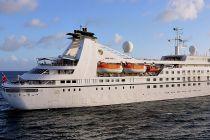
Windstar expands Canada & New England cruises in 2026
Windstar Cruises announced an expanded Canada & New England 2026 season, including a new 14-night itinerary and the return of several popular...
November 19, 2024 - Cruise Industry
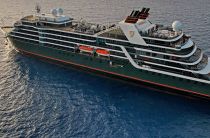
Seabourn's 2026-2027 expedition cruises - 24 new itineraries across 31 countries
The ultra-luxury expedition travel company Seabourn announced its 2026-2027 season, grouping 24 itineraries across 31 countries, including several...
November 2, 2024 - Cruise Industry
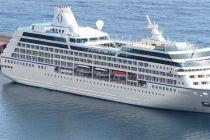
Oceania Cruises unveils 2026 Collection with 100+ global itineraries
Oceania Cruises has announced its highly anticipated 2026 Collection, featuring 100+ itineraries and 35 Grand Voyages, with bookings available from...
October 17, 2024 - Cruise Industry
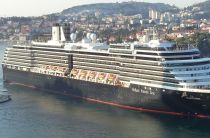
HAL-Holland America unveils expanded 2026 Canada & New England itineraries
HAL-Holland America Line will expand its Canada and New England USA season in 2026, adding more cruises, call ports, and overnight port stays. The...
October 15, 2024 - Cruise Industry
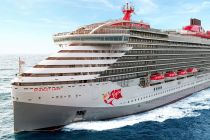
Virgin Voyages reignites 2025 Summer Season Pass for digital nomads at sea
Virgin Voyages has reintroduced its highly sought-after Summer Season Pass for 2025, offering an extended work-from-sea experience for travelers...
September 28, 2024 - Cruise Industry
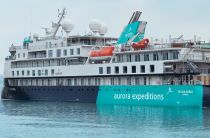
Aurora Expeditions opens 2026 itineraries with Solar Eclipse cruises and new solo cabins
Aurora Expeditions, renowned for its responsible small-ship exploration, has unveiled its 2026 Arctic and Beyond season, expanding its offerings to...
September 9, 2024 - Cruise Industry
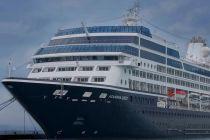
Azamara unveils 2026 Summer itineraries with Solar Eclipse cruises and new destinations
Azamara Cruises, a leader in small-ship cruising and Destination Immersion experiences, has announced its 2026 summer sailings, featuring 77 new...
September 8, 2024 - Cruise Industry

NCL-Norwegian adds 3 new ports to 2026 Spring & Summer European cruises
NCL-Norwegian Cruise Line has expanded its European offerings for the 2026 spring and summer seasons, introducing 3 new ports and itineraries...
August 24, 2024 - Cruise Industry
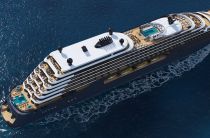
Ritz-Carlton's superyacht Ilma delivered in France
MS Ilma, the second superyacht/newest ship of The Ritz-Carlton Yacht Collection, officially joined the fleet on July 12th, following the delivery...
July 16, 2024 - Cruise Industry
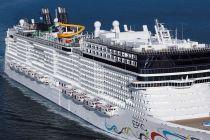
NCL-Norwegian Cruise Line launches 2024 Europe Season with Greek Isles and Italy voyage
NCL-Norwegian Cruise Line inaugurated its 2024 Europe travel season on April 19, 2024, with Norwegian Epic docking in Civitavecchia/Rome, before...
April 23, 2024 - show more news
